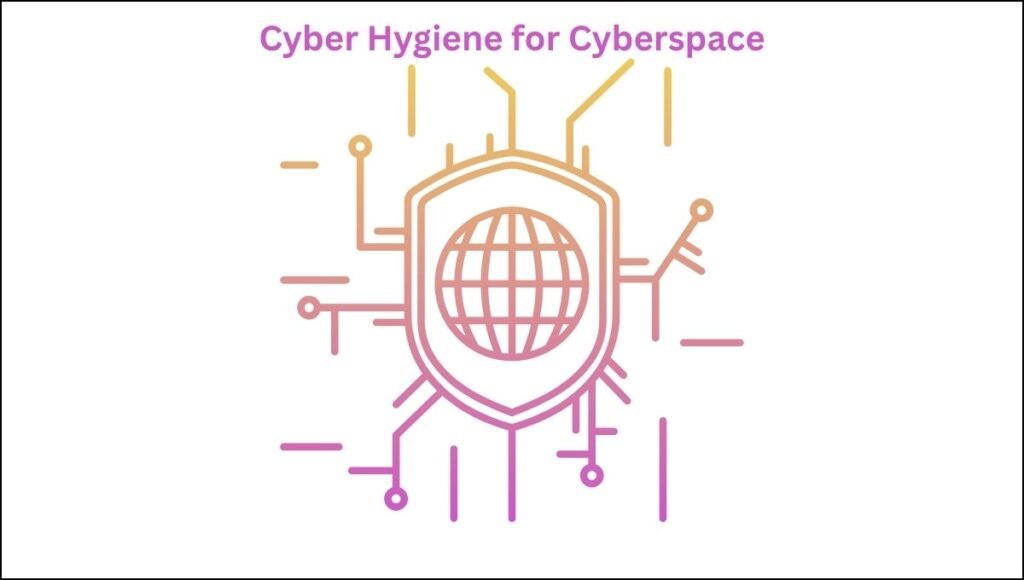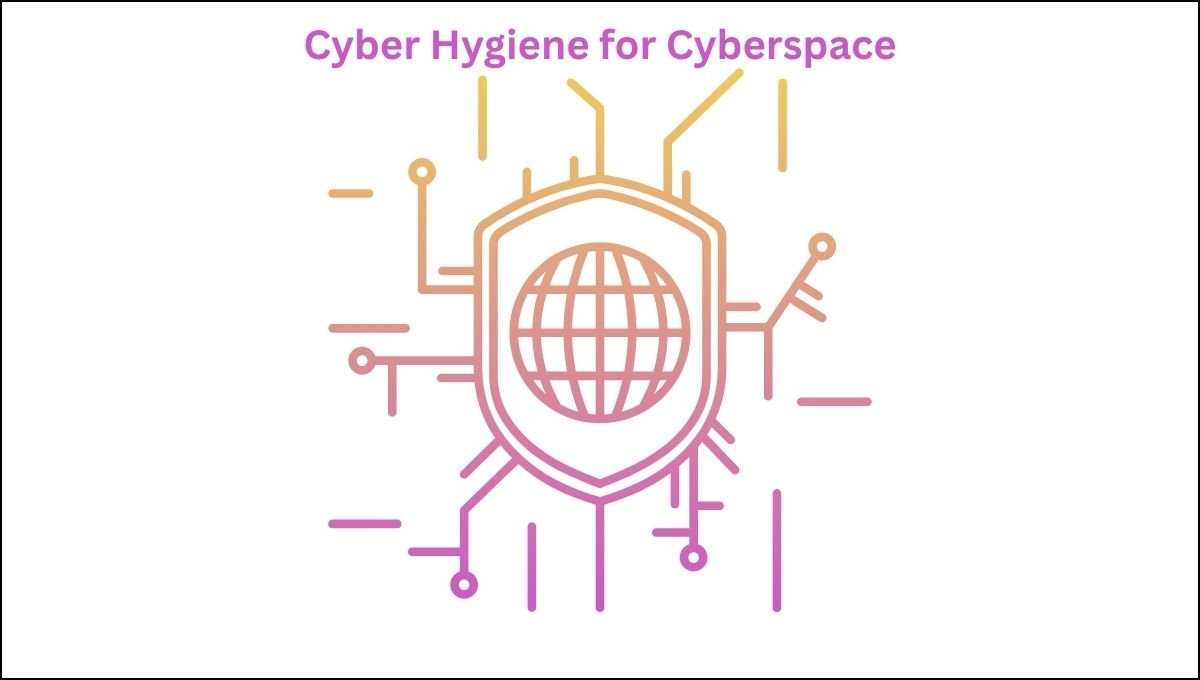Welcome to CybercrimesDaily, in this article today we will learn about Cyber Hygiene for Cyberspace. In today’s digital world, Cyber Hygiene is not just a word; it is an essential component of keeping your privacy, data, and devices safe online. Whether you are a businessperson, an individual, or part of a large organization, good cyber hygiene practices will help keep you safe from cybercriminals.
Cyber Hygiene for Cyberspace
Cyber hygiene is the practice of taking regular precautions to maintain the health and security of devices, networks, and data. Just as personal hygiene helps prevent illness, cyber hygiene is the hygiene of cyber threats like malware, phishing, identity theft, and ransomware.
Table of Contents
Why is Cyber Hygiene Important?

1. Data protection: Cyber hygiene is important to protect sensitive personal and financial information.
2. Threat prevention: It prevents viruses, ransomware, and other cyber threats.
3. Reputation management: Helps prevent data breaches that can damage trust and brand image.
Use Strong, Unique Passwords
Don’t reuse the same password across multiple platforms. Create passwords using a combination of letters, numbers, and special characters. You can think of a password manager for this.
Enable Multi-Factor Authentication (MFA)
Multi-factor authentication (MFA) adds an extra layer of security in addition to passwords, making it a must-have for security.
Keep Software and System Updates
Regularly keep your operating system, browser, antivirus software, and applications up to date. These updates include patches for old vulnerabilities.
Use Antivirus and Anti-Malware Tools
Install good antivirus and anti-malware and keep them updated regularly.
Back up Your Data Regularly
Use secure cloud storage or external drives to back up data, so you don’t lose your important data if your system is hacked.
Be Aware of Phishing Scams
Be wary of suspicious emails, links or attachments from unknown people as they could be phishing scams. Don’t provide sensitive information through websites without verification.
Secure Your Wi-Fi Networks
Use strong passwords for Wi-Fi used for your home or office. Don’t use public Wi-Fi for banking transactions. Use a VPN when accessing the internet on public networks.
Limit Data Sharing and Permissions
Don’t share personal data unless absolutely necessary. Check app permissions on your device to prevent unnecessary access to your information.
Cyber Hygiene for Business
Organizations should take cyber hygiene seriously to protect customer data and business continuity as cyber hygiene is essential for business. Cyber hygiene for business includes:
Conducting regular cyber security audits
Training employees on cyber security awareness
Implementing access control policies
Using endpoint security solutions
The Future of Cyber Hygiene
As cyber threats become more sophisticated, maintaining cyber hygiene will require a regular practice, along with proactive security strategies, the use of AI-powered tools for threat detection and prevention.
Read More
- A Comprehensive Study of Cyber Crimes Against Women in India
- Bank Fraud: Bank Employees Big Fraud, Still Going on! | Scammers’ Warning
- Cyber Fraud: Online Fraud From Abroad, Horrific Report by Home Minister | Cyber Security
- Internet Safety for Youth.| Cyber Security Awareness
- Cyber Crime: Why Should Youth Be Worried?
Final Thoughts
Good cyber hygiene is not just a one-time practice, it is an ongoing process to stay alert and informed in cyberspace. It will be difficult for both individuals and businesses to survive in the future without it, so cyber hygiene is important for both. There should be regular updates on cyber hygiene
What is cyber hygiene in cyber security?
Cyber hygiene is the practice of taking regular precautions to maintain the health and security of devices.
Which of the following is an example of cyber hygiene?
Keeping software and operating systems up-to-date with maintain the health and security of devices, networks, and data.
What can we do to increase cyber hygiene?
Create passwords using a combination of letters, numbers, and special characters. Making Strong Password, enable Multi-Factor Authentication (MFA).
What is poor cyber hygiene?
Create Weak password and not using Multi-Factor Authentication (MFA).

